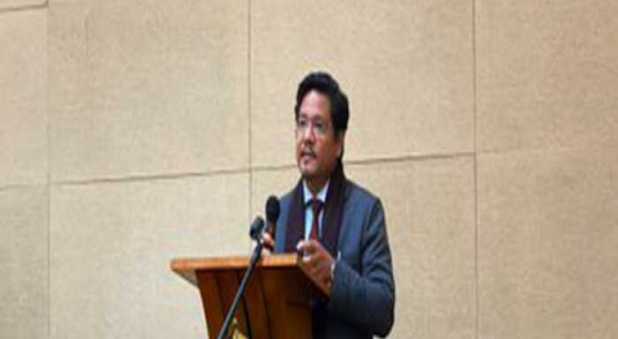
Shillong, Mar 4 : Meghalaya Chief Minister Conrad Sangma on Friday said its “normal” to withdraw the general consent to the Central Bureau of Investigation (CBI) for investigating criminal cases in the State. “Most states have done it (and) have taken (such decisions) and we are in line with that. So anybody who wants to come in has to take consent from the state, that’s all. It is a normal procedure,” Sangma told reporters outside the Assembly. The Chief Minister said the decision to withdraw the decision was taken a long time back which he said : “I can’t remember the date…,” “ ..Therefore, it is a normal thing where the state’s aspect is there and that is a decision that we take,” Sangma said. Meghalaya is only the 9th state, out of the 28,to withdraw general consent to the CBI to investigate criminal cases in their respective states. Earlier, Mizoram and seven states governed by non-NDA parties — Maharashtra, Punjab, Rajasthan, West Bengal, Jharkhand, Chhattisgarh and Kerala — had withdrawn the general consent to the CBI. Meanwhile, there are serious allegations of corruption leveled against the National People’s Party-led Meghalaya Democratic Alliance government. One of the cases relates to the education scam during the erstwhile Congress-ruled government in which the CBI has already investigated and found prima facie evidence against legislators who are now with the MDA government or are supporting it. Then there are allegations of illegal coal mining in which political leaders are said to be involved. The other case relates to the allegation of corruption against then Power Minister and elder brother of the Chief Minister, James Sangma in the implementation of the centrally sponsored Saubhagya Scheme. Withdrawal of general consent to the CBI means the investigating agency would have to take approval for the state government to investigate any case as the CBI is governed by the Delhi Special Police Establishment (DSPE) Act, 1946, unlike the National Investigation Agency (NIA), which has jurisdiction across India. Under the DSPE Act, general consent is given to the CBI by default to investigate cases of corruption, economic offenses and special crimes of serious nature like organized crime etc. However, a CBI official said that the withdrawal of general consent by the State government cannot stop the premier investigating agency from probing in old cases until specifically taken back by the state government. “The agency continues to investigate cases that were given to it by a court order. moreover, when the CBI does not have a general consent, it can approach a local court for a search warrant and conduct investigation. There is a provision in the CrPC that allows search and investigation in a state by outside agency but it has to happen through a local court,” the CBI official, who wished not to be named, said. RRK BM

